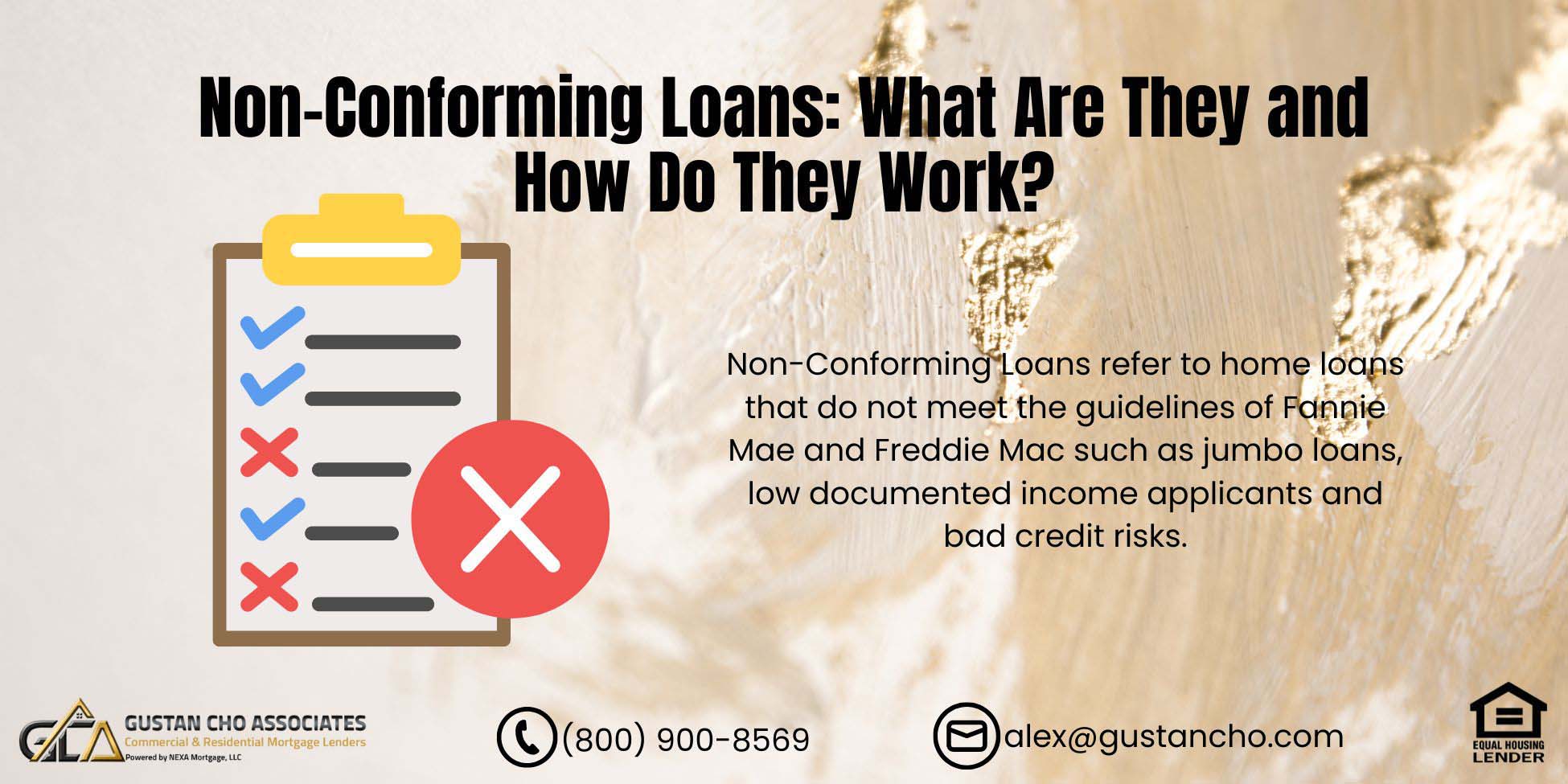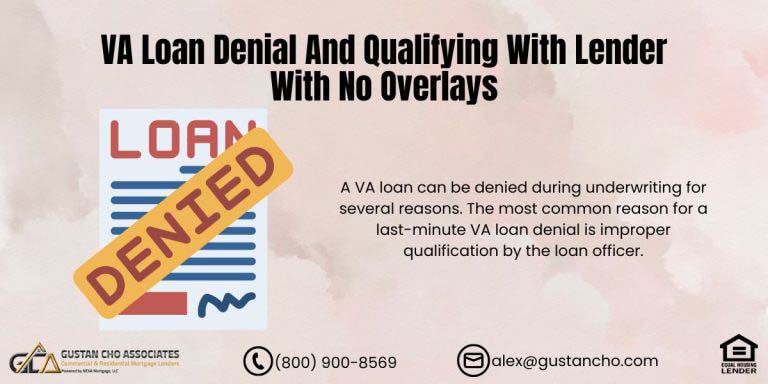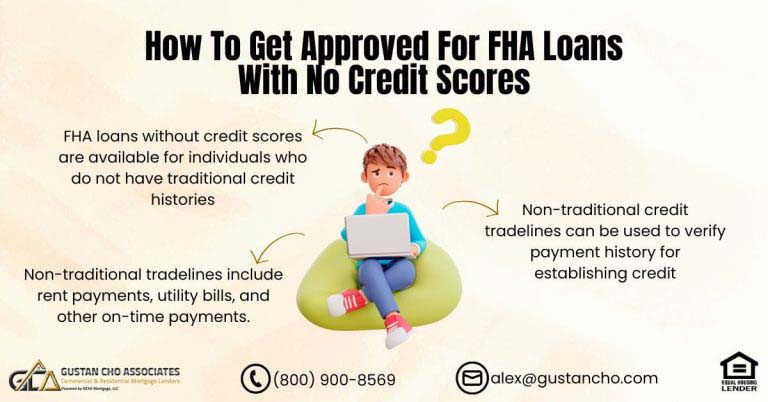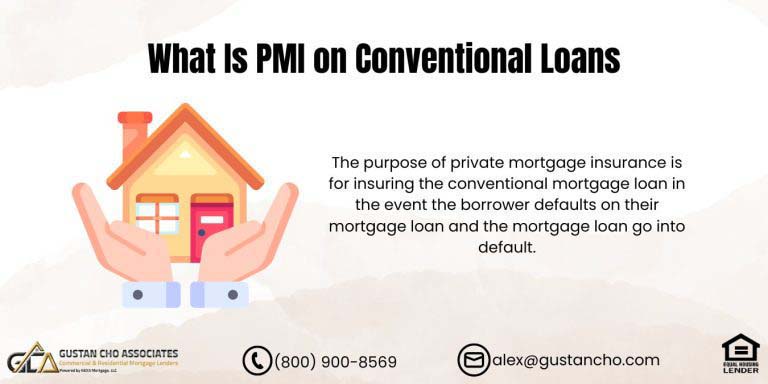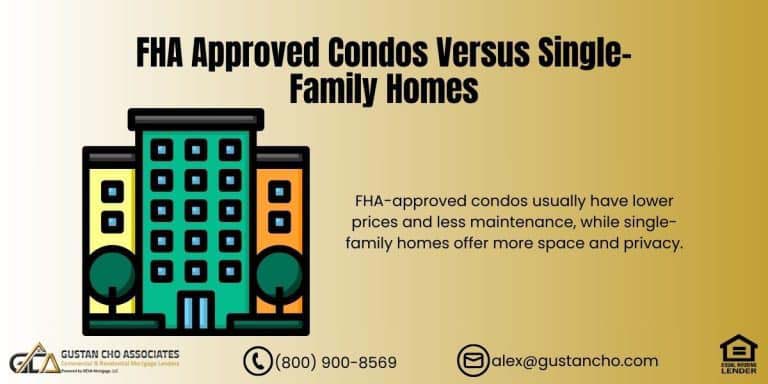In this article, we will cover non-conforming loans and the types of non-QM mortgages for borrowers who do not qualify for traditional mortgage loans.
The difference between non-conforming loans versus conforming loans is conforming loans conform to Fannie Mae or Freddie Mac Mortgage Guidelines. Any mortgage loans that do not conform to Fannie Mae and/or Freddie Mac Mortgage Guidelines are called non-conforming loans.
Conventional loans are called conforming loans. The reason it is called conforming loans is that they conform to Fannie Mae or Freddie Mac Mortgage Guidelines. Lenders do not hold loans they fund in their portfolios. Mortgage lenders used their warehouse lines of credit to fund loans. Once funded, mortgage lenders sell the funded loans Fannie Mae or Freddie Mac.
Fannie Mae and Freddie Mac do not purchase loans that do not conform to their standards. Non-conforming loans are portfolio loans that lenders normally keep it on their books once funded. Or they sell non-conforming loans to the secondary market to institutional investors, financial institutions, insurance companies, insurance companies, or money managers. In this article, we will discuss and cover non-conforming loans and types of non-QM-mortgages.
Fannie Mae and Freddie Mac Conforming Mortgages Versus Non-Conforming Loans
As mentioned in the earlier paragraph, Conventional loans are not government loans. Banks and Lenders do not want to hold the loans they fund in their books. They want to relieve their warehouse lines of credit by selling their loans to Fannie Mae and/or Freddie Mac. In order for Fannie and/or Freddie to purchase these loans, they need to conform to their standards.
Once a lender funds a conventional loan, that lender wants to sell their loan on the secondary market. Most lenders do not want to keep the loans they fund in house. Lenders have a warehouse line of credit. Warehouse lines of credit is like a giant credit card where they use their lines to fund loans. Once the loan is funded, they package them up and sell them on the secondary market to Fannie Mae or Freddie Mac. This is done to free up capital and pay down their warehouse lines of credit and do more loans.
In order for Fannie Mae and/or Freddie Mac to purchase these loans, they need to conform to their mortgage guidelines. Any home loan that does not conform to Fannie Mae or Freddie Mac Guidelines are called non-conforming loans. Non-Conforming Loans have higher mortgage interest rates and higher fees than conforming loans. The best way to understand non-conforming loans is to do a comparison to conforming loans.
Looking for Flexible Loan Options? Non-Conforming Loans Might Be the Solution You Need!
Reach out now to discuss how we can assist you in qualifying for a non-conforming loan.
What Are Conforming Versus Non-Conforming Loans
Fannie Mae and Freddie Mac are the two mortgage giants in the United States that set conforming guidelines. These two organizations are called government-sponsored entities (GSE).
The purpose of these two GSE’s is to provide a secondary market for home loans. It enables mortgage lenders to originate and fund loans over and over again by the use of their warehouse lines of credit. This is done by lenders selling the loans they fund to these two mortgage giants. Selling them to Fannie Mae or Freddie Mac relieves them of their warehouse line of credit.
Fannie Mae and Freddie Mac WILL NOT purchase any loans that do NOT CONFORM their mortgage guidelines. Fannie and Freddie are bound legally to purchase Conforming loans that conform to their guidelines within a certain loan limit. Any loans that do not conform to Fannie Mae and/or Freddie Mac conforming guidelines are called non-conforming loans.
The Role of The Federal Housing Finance Agency on Conventional Loans
The Federal Housing Finance Agency is the governmental agency that regulates Fannie Mae and Freddie Mac.
Fannie Mae and Freddie Mac are not government agencies. They are Government Sponsored Enterprises (GSE). The role of Fannie Mae and Freddie Mac is to provide stability in the housing and mortgage markets by buying mortgages from financial institutions so these institutions have market liquidity.
Fannie Mae and Freddie Mac the two largest buyers of mortgages on the secondary market. Without Fannie and Freddie, mortgage companies would not have liquidity in the market and would tie up their warehouse line of credit.
FHFA Increases Conforming Loan Limits For The Past Seven Years Due To Skyrocketing Home Prices
The Federal Housing Finance Agency (FHFA) is the government entity that regulates Fannie Mae and Freddie Mac. The FHFA sets conforming loan limits on conventional loans.
The FHFA has been increasing conforming loan limits for the past seven years due to skyrocketing home prices so homebuyers are not priced out of the housing market. Many homebuyers are priced out of the housing market because homes are selling way above the conforming loan limits. The FHFA increased conforming loan limits for 2023 to $726,200.
It is similar to HUD, the parent of FHA, where HUD sets loan limits for FHA home loans. HUD increased FHA loan limits to $472,030 for 2023. FHFA has increased conforming loans limits to $726,200 in most parts of the country starting January 2023. High-Cost Areas have higher conforming loan limits.
California Housing Market and Home Prices
California has the nations highest home prices. Average home prices in California is $757,000. That is double the price of an average home in other states. Many counties in California have are considered high-cost areas.
Conforming loan limits in high-cost areas are much higher than the standard $726,200. High-cost loan limits are cost high-balance conforming loans. The maximum conforming loan limit in high-cost counties in California on single-family homes for 2023 is $1,089,300.
The 2023 conforming loan limit in high-cost areas on single-family homes is now $1,089,300 was an increase from the 2022 conforming loan limit of $970.800. There are loan level pricing adjustments on high-balance loan in high-cost areas. Mortgage rates are higher on high-balance loans in high-cost counties.
What is Another Name for a Non-Conforming Loan?
When it comes to non-conforming loans, another name for them is the “jumbo” loan. These are loans which fail to conform to the standards set by government-sponsored enterprises such as Fannie Mae and Freddie Mac. They often surpass the loan limits set by these institutions, hence the term “jumbo”.
Reasons Why Homebuyers Choose Non-Conforming Versus Conforming Loans
Common sense says why even bother with non-conforming loans versus conforming loans. Many folks are under the belief that non-conforming loans are for borrowers with bad credit. Some think non-conforming loans are subprime mortgages. This is not always the case.
Non-conforming loans are mortgage loans that do not conform to Fannie Mae and/or Freddie Mac agency guidelines. Jumbo loans do not conform to Fannie Mae and/or Freddie Mac maximum loan limit agency guidelines therefore are classified as non-conforming loans. Borrowers of traditional jumbo loans need 700 plus credit scores, low debt to income ratios and 20% down payment.
Jumbo loan borrowers are prime borrowers but need non-conforming loans. Gustan Cho Associates has a specialty traditional 90% LTV jumbo mortgages with no private mortgage insurance required with credit scores down to 660 FICO and 50% debt to income ratios.
What Are Non-Conforming Loans and How Can They Help You? Let’s Find Out!
Contact us today to discuss your options and see how a non-conforming loan can work for you.
Non-QM Mortgages Guidelines on Non-Conforming Loans
There are many reasons why borrowers need to go with non-conforming loans. There are many different types of non-QM and alternative specialty non-conforming mortgage loan programs. Non-conforming non-QM loans are not just for borrowers with bad credit, low credit scores, recent bankruptcy and/or foreclosure, or other credit issues.
Many borrowers with prior bad credit do benefit from non-QM and non-conforming loans. However, there are many homebuyers with excellent credit that cannot meet the mortgage guidelines of traditional government and/or conventional loans but will qualify for non-QM mortgages. A perfect example is the 12-month bank statement loans for self-employed borrowers with no income tax returns required. Most self-employed or business owners have excellent credit.
Due to the benefits of using unreimbursed business expenses on their income tax returns, many do not qualify for a mortgage due to lower adjusted gross income. Therefore, bank statement loans for self-employed borrowers are the best loan program for business owners and self-employed borrowers.
Non-QM and Alternative Specialty Non-Conforming Loans
There are several different types of non-QM loan programs. There are no waiting period requirements after housing events with non-QM loans one day out of bankruptcy and foreclosure. Homeowners who were late in the past 12 months with their mortgage payments can qualify for non-QM loans with recent lates on a housing payment.
Non-QM Lenders do have slightly higher rates. Non-QM mortgage rates are based on credit scores, the type of property, the down payment and/or LTV, loan amount, debt to income ratio, compensating factors.
Borrowers with a prior bankruptcy and foreclosure can qualify for non-QM loans one day out of bankruptcy and/or foreclosure with a 30% down payment. 10% to 30% down payment is required on non-QM loans. Asset-depletion loan programs are very popular for retired wealthy individuals without traditional income. The down payment on non-QM loans depends on the borrowers credit scores, seasoning of the bankruptcy and/or foreclosure, and other risk factors.
Types of Property
Non-Warrantable Condominiums:
- Non-warrantable condominium financing are non-conforming loans
- A condominium complex that has over 51% of the units as non-owner occupant-owned is called non-warrantable condos
- Fannie Mae and Freddie Mac will not purchase non-warrantable condo loans
- Condotels are condominium units that are within a hotel complex
- Fannie Mae and Freddie Mac do not purchase Condotel loans
- Gustan Cho Associates offers condotel financing
Who Might Non-Conforming Loans be Best For?
Non- conforming loans are better for people that:
Need Larger Loans: It is common in high cost housing markets to have individuals who need these large loans higher than the single limit on conforming loans.
Have Different Income Scenarios: Often such ones self-employed, entrepreneurs or those with unsteady incomes may fail to meet the strict income verification standards of conforming loan types.
Have Unorthodox Credit Histories: Conforming loan policies only take into account that which is typical credit wise. This does not work well for persons who might be having abnormal credit situations such as low scores or having very little borrowing history.
Look for Specialized Property Types: Some people want properties that may not be financed through conforming home mortgages. They include; multi-family homes , certain investments and unique residential properties amongst others.
Prefer Increased Flexibility: Others like their Debt-to-income ratios, sources of down payments, finance benchmarks etc. to be underwritten more leniently.
Non-conforming loans can have more customizable terms depending on individual borrowers’ financial positions though they may come at higher interest rates while qualification terms could become tighter sometimes.
Need a Loan That Doesn’t Fit Traditional Guidelines? Explore Non-Conforming Loan Options!
Reach out now to learn more about these loans and how they can help you get the financing you need.
Qualification Requirements on Non-Conforming Loans
Every lender can have its own separate mortgage guidelines on non-conforming loans. Most mortgage lenders’ non-conforming lending requirements are similar. Here are the basic requirements Gustan Cho Associates has the following loan programs:
- 10% to 30% down payment on non-QM loan programs
- The amount of down payment depends on the borrowers credit score
- With non-QM loans to qualify for a 10% down payment on a home purchase, a 680 credit score is required
- 660 credit score requires 15% down payment on home purchase on non-QM loans
- 640 credit score is the minimum credit score required, a 20% down payment is required
- Lower credit scores requires a larger down payment and there are loan level pricing adjustments
No waiting period after bankruptcy and/or a housing event:
- Bankruptcy
- Foreclosure
- Deed In Lieu Of Foreclosure
- Short Sale
Debt To Income Ratio:
- 43% debt to income ratio but negotiable
- Up to 50% debt to income ratio with compensating factors
Bank Statement Loan Program For Self Employed Borrowers:
-
- We offer 12 months and 24 months of bank statement deposits
- Can be business or personal accounts
- 100% of bank deposits are averaged over the past 24 months to derive monthly income on personal bank accounts
- 50% of bank deposits are averaged over the past 24 months to derive monthly income on business bank statements
- 10% to 20% down payment
- Need 720 credit scores for a 10% down payment
Jumbo Mortgages:
- 90% LTV Jumbo Mortgages need 660 credit scores and up to 50% debt to income ratios
Terms and Rates on Non-Conforming Loans
Any mortgage loans that do not conform to Fannie Mae and/or Freddie Mac Mortgage Guidelines are called non-conforming loans. Jumbo Loans are non-conforming because they exceed conforming loan limits.
Mortgage Rates on non-conforming loans are higher than government and conventional loans. Minimum down payment requirements are 10% to 30%. The higher a borrower’s credit scores, the lower the down payment requirements.
There are 30-year fixed-rate mortgages as well as adjustable-rate mortgage loan programs available. There are no pre-payment penalties.
What is a Non-Conforming Bank?
A non-conforming bank is a financial institution that provides loans and monetary services devoid of conforming to the standard criteria set by typical banking regulations and instructions, often identified as non-QM (non-qualified mortgage) lenders. Such banks usually provide;
Non-Conforming Loans: These are loans that do not meet the standards set by government sponsored enterprises like Fannie Mae and Freddie Mac. This includes jumbo loans, borrowers with irregular income or those who have less-than-perfect credit histories.
Alternative Lending Options: These are financial products tailored towards individuals seeking unconventional property financing options or those with unique income sources such as self-employed people who may not qualify for traditional loans.
Flexible Underwriting Guidelines: These refer to more customised and flexible criteria for loan approval that take into account a wider range of financial conditions, as well as credit profiles.
Specialized Financial Services: There is also provision of specialized financial services aimed at addressing niche markets or meeting specific borrower needs which are overlooked by standard banks.
Non-conforming banks play a crucial role in offering Non-Conforming Loans as well as access to credit to individuals and businesses outside the mainstream lending framework, providing more personalized solutions for diverse financial needs.
What is a Non-Conforming Asset?
An asset that does not conform is one that fails to meet the standardized specifications given by conventional finance, government regulation or industry’s guidelines. These typically include:
- Non-Conforming Loans: Such loans do not follow the set criteria of governments’ sponsored enterprises such as Fannie Mae and Freddie Mac. They comprise jumbo loans, loans with irregular income borrowers or loans with lower credit scores.
- Real Estate Properties: This entails properties which are not like typical mortgage lending standards for example non-conventional types of housing, properties in need of major repair work and those found in unconventional areas.
- Investment Instruments: Non-traditional financial products such as hedge funds, private equity, or other alternative investments that do not conform to standard investment standards.
- Specialized Assets: Unique or niche assets which are not part of conventional asset classes such as rare collectibles, artwork or other high-value items typically overlooked in traditional asset portfolios.
Due to their unique features as well as higher inherent risk levels, non-conforming assets often require specialized management and valuation. Non-conforming assets usually call for more expertise because they are more complex than most investments; hence financial institutions engaged in them particularly offering non-conforming loans should be considered experts on this subject.
Non-Conforming Loans Is Adding Fuel To The Fire on a Booming Housing Market
With housing prices escalating like it been the past year with no signs of a housing correction, homebuyers who do not qualify for conforming loans now can take advantage of non-conforming loans to purchase a home. If our viewers have any questions on the above topic, please do not hesitate to call or text me at 800-900-8569 or email us at gcho@gustancho.com.
Gustan Cho Associates is a national mortgage company with no lender overlays on government and conventional loans. We also have dozens of lending relationships with wholesale non-QM and non-conforming lenders. The team at Gustan Cho Associates can offer non-QM loans, bank statement loans, no-doc loans, stated income loan programs, asset-depletion mortgages, non-QM mortgages one day out of bankruptcy and foreclosure, 90% LTV jumbo mortgages, mortgages with prior recent late payments, and dozens of other non-conforming loans.
The team at Gustan Cho Associates is available 7 days a week, evenings, weekends, and holidays. For more information or to qualify at Gustan Cho Associates, please contact us at 800-900-8569 or text us for a faster response. Or email us at alex@gustancho.com.
FAQs: Non-Conforming Loans
- 1. What are Non-Conforming Loans? Non-Conforming Loans refer to home loans that do not meet the guidelines of Fannie Mae and Freddie Mac such as jumbo loans, low documented income applicants and bad credit risks.
- 2. What is the difference between Conforming and Non-Conforming Loans? Fannie Mae and Freddie Mac’s guidelines are adhered to by conforming loans, enabling them to be traded to these entities. In contrast, Non-Conforming Loans do not meet these standards and are typically retained by the lender or offloaded to other investors.
- 3. Who are Non-Conforming Loans best for? Non-Conforming Loans are ideal for borrowers seeking large loan amounts, self-employment individuals, people with non-traditional credit histories, purchase of specialty property types, and those looking for more flexible underwriting criteria.
- 4. What is a Non-Conforming Bank? This is a financial institution that offers Non-Conforming Loans as well as other financial services not abiding by conventional banking standards. These banks offer alternate lending options, relaxed underwriting criteria and specialized financial services.
- 5. What is a Non-Conforming Asset? Simply put, any asset not meeting standard financial or regulatory requirements is considered a non-conformant asset. They could include different forms of property (real estate), certain kinds of investments (unconventional or non-traditional), amongst others.
- 6. Why would someone choose a Non-Conforming Loan over a Conforming Loan? When it comes to larger loan amounts required by borrowers or unique income/credit situations faced by homeowners or even purchasing specialty properties one may opt for Non-conformance loans instead. While they do provide more customized terms however they also come with higher rates of interest and more stringent qualification conditions.
- 7. Are Non-Conforming Loans more expensive than Conforming Loans? Yes…But contrastingly so much because these typically carry increased rates of interest when compared to conforming loans due to their hard-to-value nature and high-risk levels involved.
- 8. Can borrowers with bad credit get Non-Conforming Loans? Yes, non-conforming loans can be availed to people with bad credit scores. These types of loans were created to cater for different financial situations including those with low credit scores or other recent financial troubles happening such as bankruptcy and foreclosures.
- 9. What types of Non-Conforming Loans are available? Examples of non-conforming loans include jumbo loans (large mortgage amounts), bank statement loans (self-employed persons), no-doc/stated income loans, asset-depletion, and flexible guidelines for non-QM loans among others.
- 10. How do Non-Conforming Loans impact the housing market? Non-Conforming Loans enable potential homeowners who do not qualify for conforming mortgages to buy homes in a hot real estate market. They increase liquidity and flexibility so that more people may partake in the market even though prices are going up.
For further details or how to apply for a Non-Conforming Loan contact us at Gustan Cho Associates on 800-900-8569 or send an email through gcho@gustancho.com; we are available seven days per week including evenings, weekends, and holidays.
This blog about Non-Conforming Loans was updated on June 28th, 2024.
Curious About Non-Conforming Loans? Let’s Help You Understand How They Work!
Contact us today to learn more about non-conforming loans and how they can help you secure financing.


